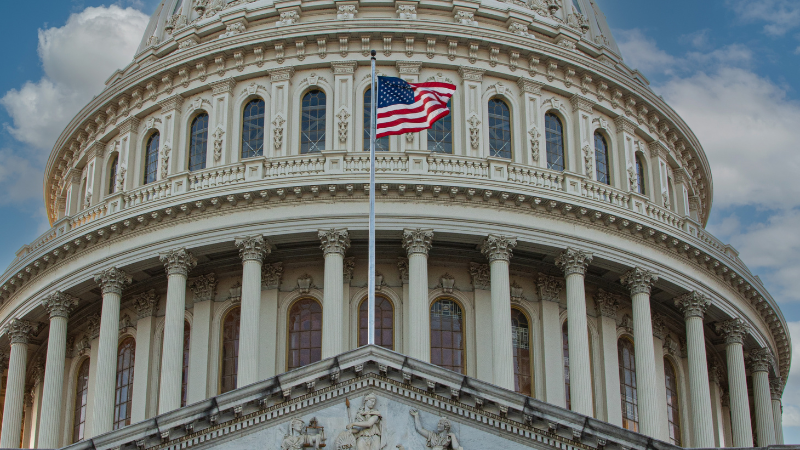
CHICAGO, June 6, 2025 — The heavy hand of government may be feeling a little lighter this week to the food-away-from-home business, a sign lawmakers and regulators are hearing the trade’s complaints about well-intentioned initiatives delivering unforeseen negative consequences.
What’s more, the recent breaks have come from all levels of government and regardless of which party is in control.
Here’s a roundup of the developments that could help the business.
Trump Administration aims for more workplace-safety collaboration
Employers in all fields, the FAFH business included, often run afoul of federal workplace regulations because they don't understand how the rules apply to their specific situation. The U.S. Department of Labor announced this week that five of its main enforcement subdivisions would strive as a routine practice to educate the confused parties instead of hitting them with sanctions.
The department said the five agencies will invite the businesses they regulate to request what's known as an opinion letter if they’re confused about compliance. An operation can detail the peculiarities that have left it uncertain about its obligations and ask for instructions on what to do or not do.
“Opinion letters are an important tool in ensuring workers and businesses alike have access to clear, practical guidance,” Deputy Secretary of Labor Keith Sonderling said in the announcement. “Launching this program is part of our broader effort to empower the public with the information they need to understand and comply with the laws the department enforces.”
The agencies included two that have frequent dealings with the FAFH industry: The Occupational Safety and Health Administration (OSHA) and DOL’s Wage and Hour Division.
Also participating are Employee Benefits Security Administration, the Veterans’ Employment and Training Service, and the Mine Safety and Health Administration.
Concerned N.Y. restaurateurs snag facetime with lawmakers
A group of restaurateurs from western New York met this week with a state representative from the Buffalo area to explain why the industry would be hurt by several pieces of legislation pending in Albany.
The industry delegation also used the meeting to ask for an increase in tourism promotion to counter a sharp drop in visits by Canadians. About 32% fewer neighbors from the North visited the U.S. by car in March, according to Forbes.
Convened by the New York State Restaurant Association, the restaurant contingent argued that its businesses would be walloped by legislative proposals like the Packaging Reduction and Recycling Infrastructure Act. The bill would require restaurants and other businesses in the state to connect with organizations dedicated to reducing the use of packaging.
It also calls for banning the use of certain packaging materials on a schedule the restaurants criticized as being unrealistic in the current trying environment.
Restaurants log win after win on the tip credit
The industry has been particularly successful in recent weeks in beating back organized labor’s efforts to kill the tip credit, the concession that allows employers to count tipped employees’ gratuities as a portion of the minimum wage they’re due.
Labor had a high-profile victory in 2022 when voters in Washington, D.C., approved a ballot proposal to phase out the break for employers. From the day the elimination process began, restaurants have complained that they can’t cover the jump in their labor costs. Establishments were closing at the rate of one per week, according to the Restaurant Association of Metropolitan Washington.
Now, at the request of Democratic Mayor Muriel Bowser, District lawmakers are considering a reinstatement of the full tip credit. The D.C. Council indicated which way it was leaning when it voted on Tuesday to delay a $2 bump in the minimum wage for tipped workers. The legislators indicated that they saw no reason to raise the wage when the pay structure for servers and bartenders is likely to be recast in the near future.
That’s not the industry’s only victory on the tip credit. In Colorado, Democratic Gov. Jared Polis signed a bill that allows local jurisdictions to raise the amount of tipped income that can count toward a server or bartender’s minimum wage.
Swipe-fee relief may be delayed in Illinois
A delay could work against the FAFH industry in Illinois. The state was poised to become the first in the nation to exempt tips and taxes from swipe fees, the assessments levied on merchants by banks and credit card companies for processing patrons’ credit-card charges.
The exemption was slated to begin July 1, 2025, but the state legislature this week approved a one-year postponement. Gov. Jay Pritzker has not revealed whether he’ll approve the delay.
The banking industry has been lobbying full-bore against the measure and other efforts to reduce swipe fees, now a typical restaurant’s third-highest expense, behind labor and food. It contends that the Illinois exemption will force businesses in the state to invest in costly technology that can factor out tips and taxes.
As Managing Editor for IFMA The Food Away from Home Association, Romeo is responsible for generating the group's news and feature content. He brings more than 40 years of experience in covering restaurants to the position.